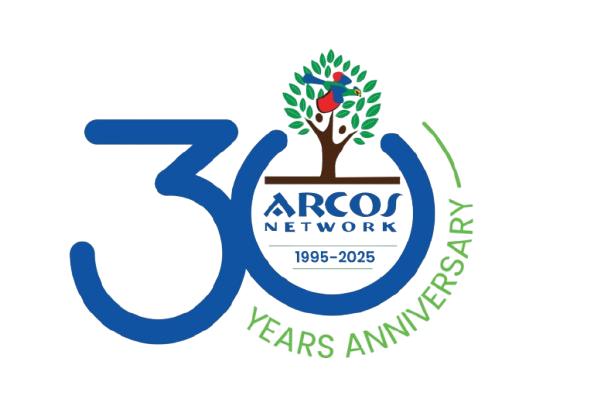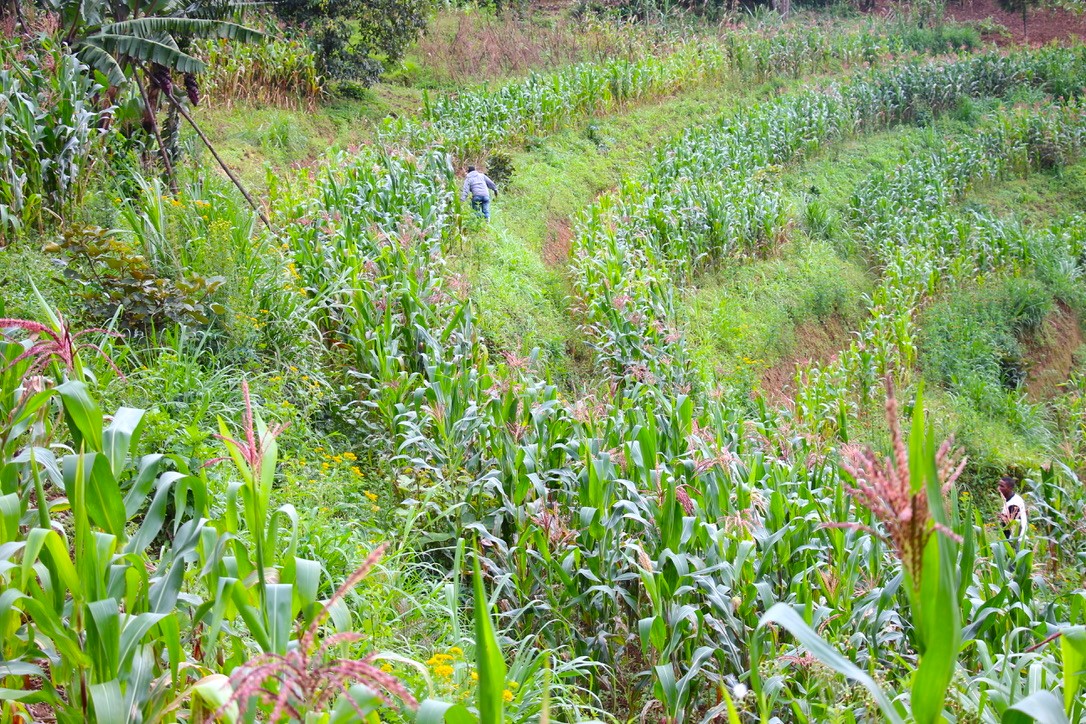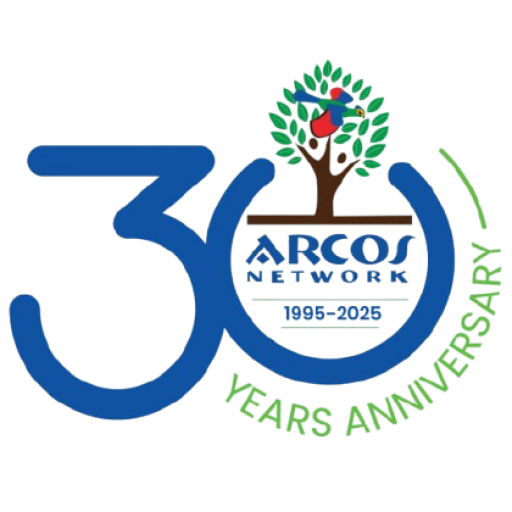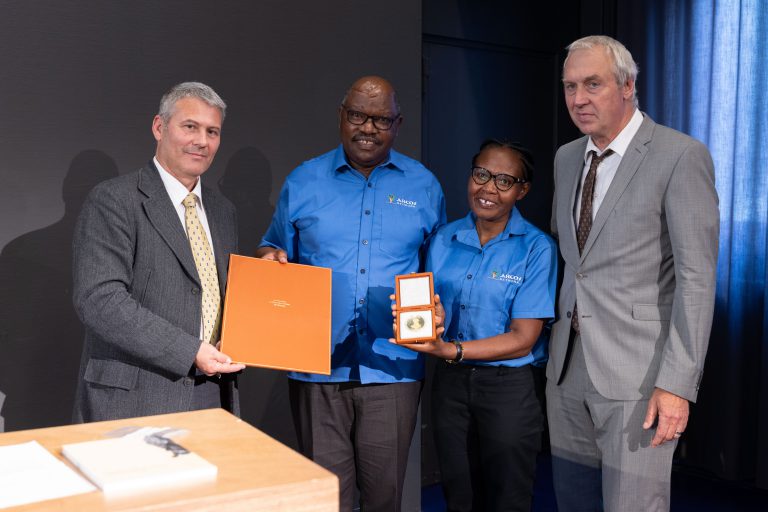Steep slopes and heavy rains have long plagued farmers in Western Rwanda, leading to devastating soil erosion and threatening their livelihoods. A 2018 study by the International Soil Conservation Organization (ISCO) found erosion rates as high as 100 tons per hectare per year! This depletes vital nutrients, reduces crop yields, and jeopardizes food security in the region.
But there’s a solution rising from the slopes themselves: terracing. ARCOS is empowering communities in Western Rwanda to implement this age-old practice with a modern twist.
“ARCOS brought hope and joy to us,” says Olive Bayisenge, a Rwandan farmer. Standing beside her neighbor Jean Baptiste Tegamaso, she continues, “Our community has been facing a number of environmental issues that affected our livelihoods.”
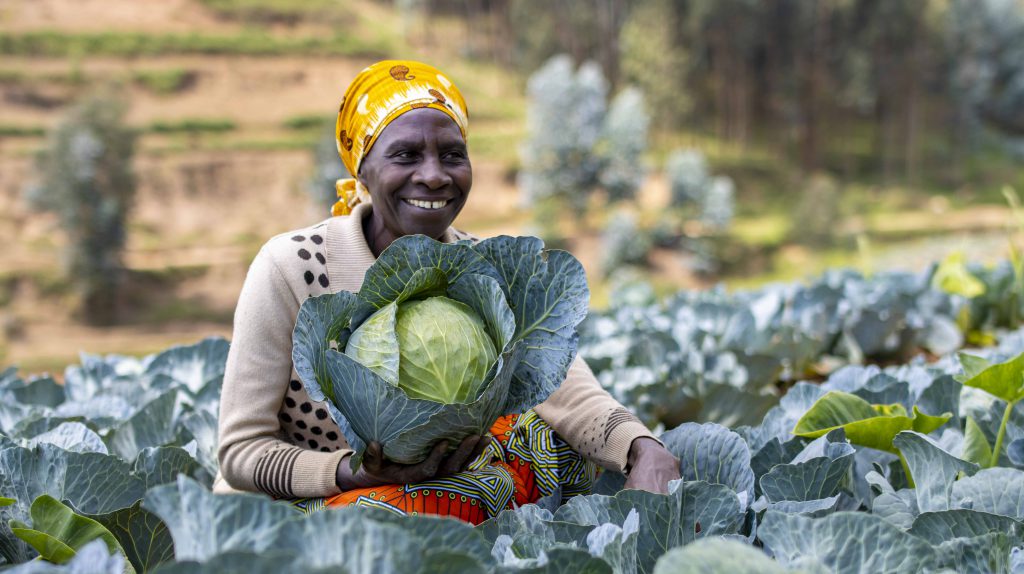
Jean Baptiste echoes her sentiment, expressing his belief that “the project interventions are going to build resilience to environmental challenges and is currently improving our socio-economic aspects.”
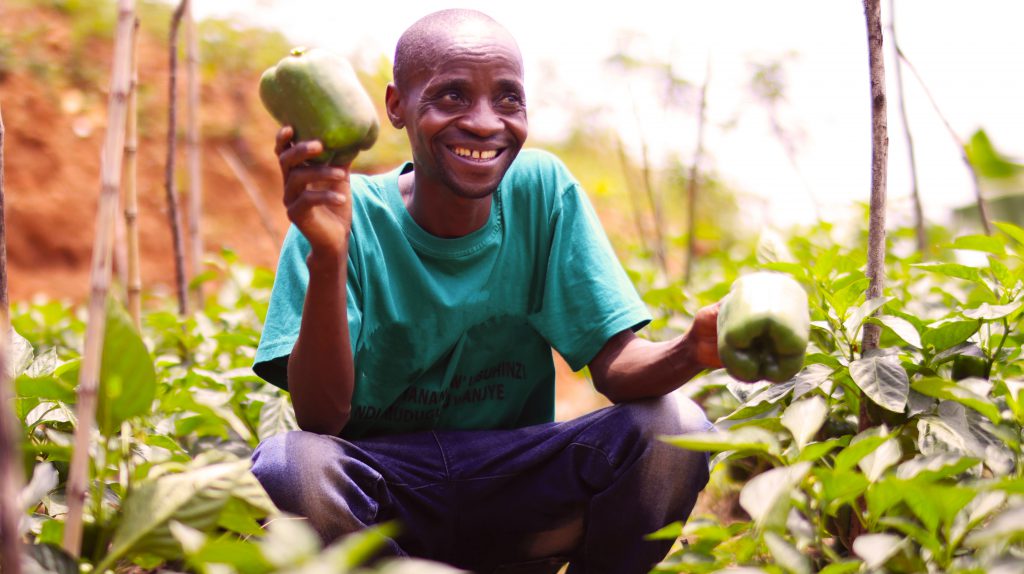
Terracing, in essence, creates leveled steps on slopes. This seemingly simple technique offers a multitude of benefits:
- Combating Erosion: Terraces act as barriers, slowing down water runoff by up to 80% (World Agroforestry Centre, 2020). This significantly reduces soil erosion, the lifeblood of healthy agriculture. Studies by the Rwandan Ministry of Agriculture (MINAGRI) show terracing can decrease soil loss by up to 90% in some areas.
- Optimizing Water Management: Terraced fields improve water infiltration by up to 30% (World Agroforestry Centre, 2020). This captured rainwater becomes readily available for crops, reducing dependence on unpredictable rainfall patterns. In a drought-prone region, this translates to improved crop yields and increased food security.
- Unlocking New Agricultural Land: Terracing transforms previously unusable slopes into fertile ground. Western Rwanda, with only 20% of land suitable for cultivation due to its mountainous terrain, sees a significant boost. A 2021 report by the Food and Agriculture Organization (FAO) estimates a 15% average increase in usable agricultural land from terracing projects.
- Protecting Downstream Ecosystems: Terraced fields act as natural filters, trapping sediment that would otherwise pollute rivers and streams. This safeguards vital freshwater resources like Lake Kivu, a biodiversity hotspot, from excess sediment.
The impact of terracing goes beyond the numbers. ARCOS recognizes the importance of community involvement. Local knowledge and traditional practices, combined with modern engineering techniques, are key to designing and constructing effective, sustainable terraces. By empowering communities, ARCOS fosters a sense of ownership and responsibility for the future of food security in Western Rwanda.
